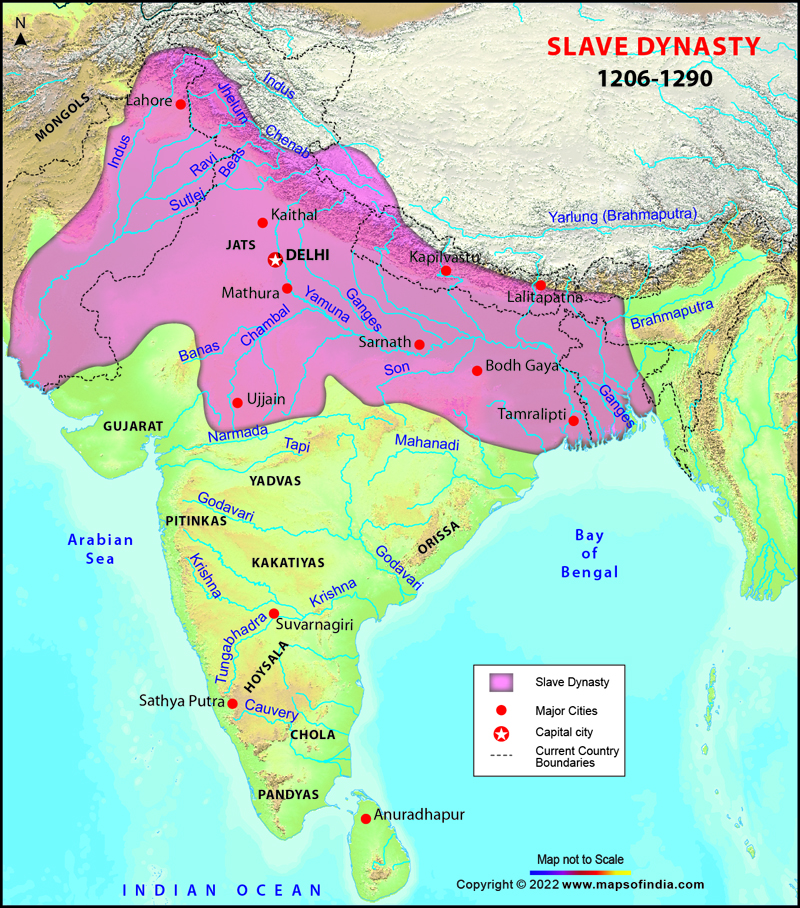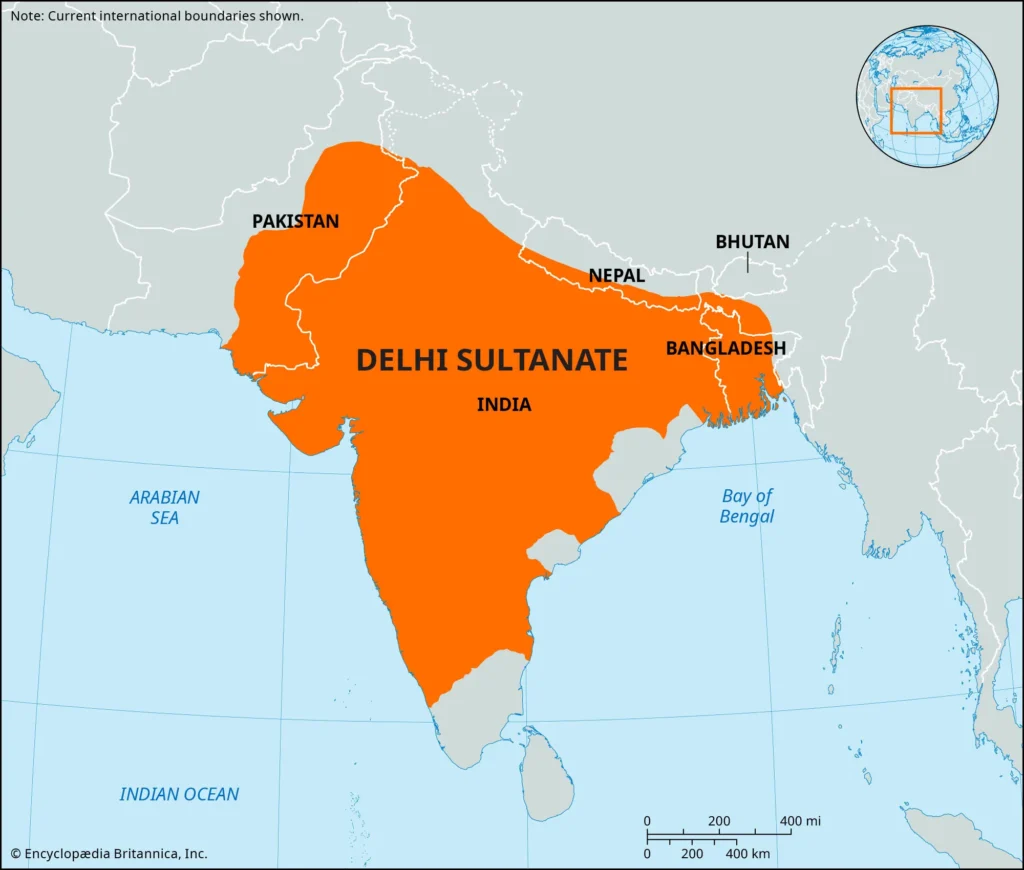Was Delhi Sultanate a theocracy? discussed by Harsh
The establishment of Turkish rule in India during the last decade of 12th century AD, marked the beginning of new phase in Indian history because for many centuries hereafter India was ruled by Turko-Afghan rulers. This came to known as Delhi Sultanate. The question “was Delhi sultanate a theocracy?” is a much debating among scholars, as some of them said it was a theocracy while some decline the same. As a result, number of theories came in light after careful researchers.
Theocracy is basically a form of government where the head of state and head of religion is same individual. In theocracy, king of state was also head of the religion. There is no place of secularism in a theocracy state because they followed the religious laws and rules for run the state administration and the politics was dominated by religious peoples. On the basis of relationship of Caliph and Sultan and of Ulemas, many of scholars emphasized that Sultanate was a theocratic state.
Also Read : Delhi Sultanate – Iqta System
Delhi Sultanate – Politico-Administration System
Turkish Rule in India: Changes in Technology and Economy
Relation Between Caliph and Sultan of Delhi
The supporters of theocracy theory emphasized that Caliph was the real head of state and Sultan was only a subordinate officer of him as many of the Sultans of Delhi sought investitures (letter of recognition from Caliph). Name of Caliph was inscribed on coins and many Sultans adopted the title of deputy of leader faithful (deputy of Caliph).

But critical examination suggested that all these facts were more or less baseless as no sultan was got crown with the help of Caliph. The investitures issued by Caliph was a matter of prestige to Caliph itself as Sultan of Delhi was the most powerful authority in entire Islamic world and these investitures only having ceremonial and psychological significance. And many of the Sultan did not seek any investiture from Caliph. Sultan like Nasir-ud-din Khusro Shah (c. 1320 AD) declared himself a Caliph. Thus, relations of Caliph and Sultan did not support any theocratic character.
Nature of Legal System in Delhi Sultanate
The supporters of theocracy theory emphasized that Shariat was law of land in Delhi Sultanate and thus, it was a theocratic state. But this does not appear to be correct because Shariat was followed by Sultans in a limited way. Many of the occasions secular decrees were also issued by Sultan as per need of circumstances. Alauddin clearly proclaimed that he issued the orders by demand of circumstances without worrying about any religious appropriateness.
Zia-ud-din Barani believed that sultanate was guided by “Jahandari” (state guided by worldly circumstances) and he refused to accept Sultanate as “Dindari” (state guided by religious considerations).
Position of Ulemas
Ulemas were the priest of Islam and they formed the religious class during Delhi Sultanate. The closer examination of evidences suggested that political influence of the Ulemas was indirectly proportional to the power of Sultans. The Ulemas influenced significantly the politics during the reign of weak sultans but during the time of powerful sultans like Alauddin Khilji, Mohammad-Bin-Tughlaq etc. they did not allow to interfere in political system. Thus, the theory of theocracy was also failed here.
Position of Islam During Delhi Sultanate

In a theocratic state, the resources of state were dedicated to the promotion of religion. So, the supporters of this theory emphasized that Sultan of Delhi used the resources of state in promotion of Islam because it was the religion of state and of ruling class. They emphasized that temples were demolished, Jaziya was imposed and peoples were forced to convert in Islam.
The closer examination revealed that there some instances of conversion in Islam in Medieval India recorded and many of them were voluntarily and references of forced conversions were rare. The temples demolished were mainly during the time of wars and battles, and sometime to terrifying the rebellions. When Iltutmish was advised by Ulemas to convert peoples of India in Islam, he refused to do so and emphasized that the conditions in India were different from Central Asia.
Islam was never a religion of majority of population in India. There was large number of Hindu temples flourished during medieval time. Sultans of Delhi did not even used their resources on the promotion of Islam because they focused on strengthening the state politically and militarily. Thus, theocracy cannot be accented in this case also.
Position of Hindus and Muslims in Delhi Sultanate
According to the supported of theocracy theory, Muslims were termed as “Millat” and Hindus were termed as “Zimmis”. They emphasized that Hindus were insulted and humiliated by state, and they were made to pay religious tax, Jaziya. But the reality was something else as per the evidences revealed by texts. Examination indicates that most of the land during the Delhi sultanate was belonged to the Hindus.
Economic condition of Hindus was far better than the Muslims during this age. The instances of humiliation of Hindus as mentioned by Barani, does not appear to be correct because no state could survive by antagonizing majority of the population. Majority of the Hindu population was free from Jaziya because women, Brahmans, beggars, destitutes and unemployed persons were free not to pay Jaziya.
It was never a major source of income for the state. Hindus were allowed to follow their faith, religion and customs without much difficulties. Alauddin Khilji allowed to passed Hindu religious possession from the front of his palace. Hindu laws were followed for Hindus in civil matters while Islamic law was only followed in criminal matters. The term Zimmi used for Hindus was not a derogatory term as portrayed by some scholars.
Thus, the elements of theocratic was difficult to find in the character of the Delhi Sultanate. At most, it could only accept as an Islamic state in formal sense. Even Islam was not followed rigidly by state.

Pingback: Shams-ud-din Iltutmish – The Real Founder of Delhi Sultanate